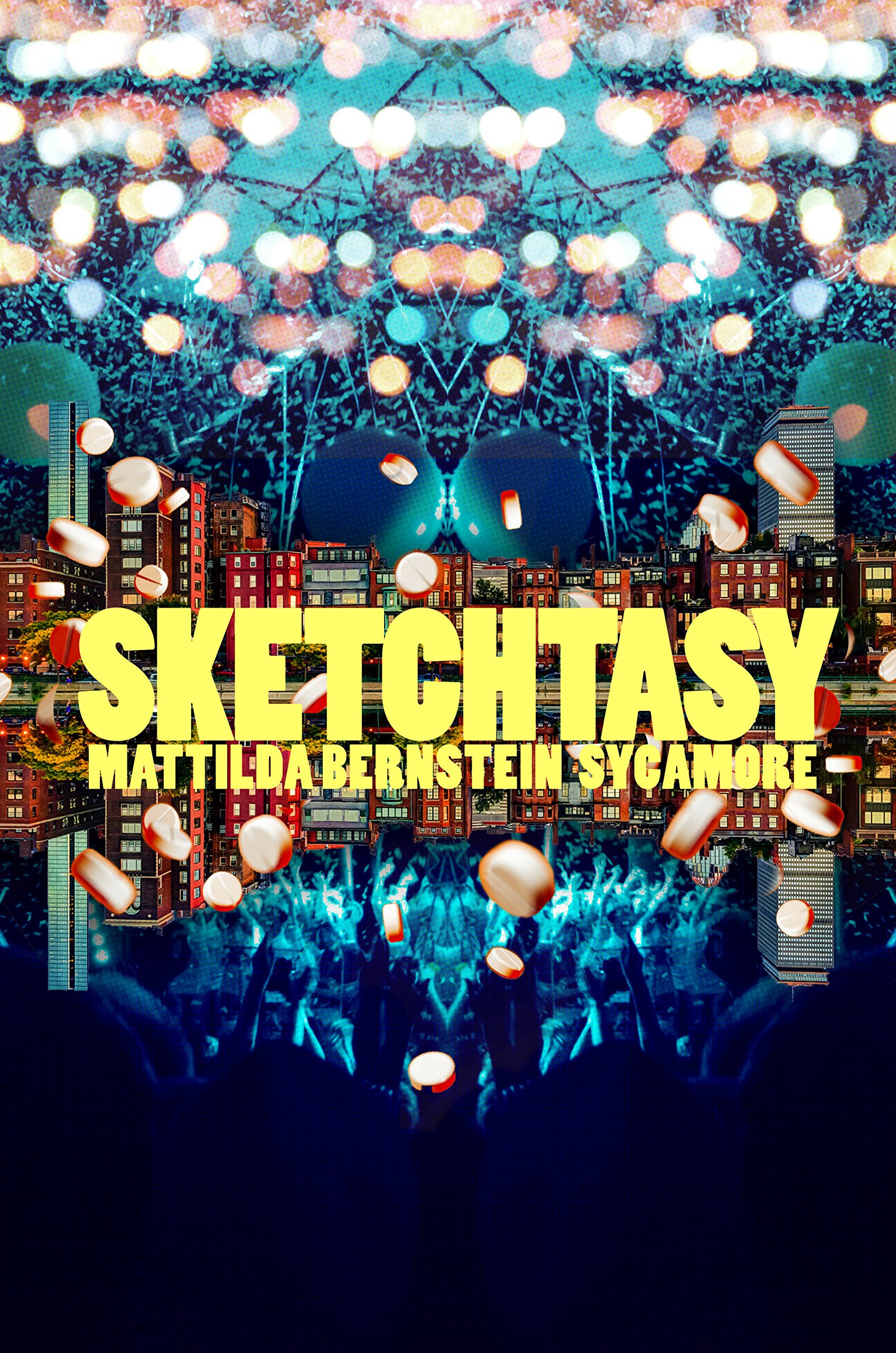
Format: 256 pp., paperback; Size: 6″ x 8″; Price: $17.95; Publisher: Arsenal Pulp Press; Number of times narrator Alexa does ecstasy: at least seven; Number of David Wojnarowicz books mentioned: two; Number of disparaging references to Priscilla, Queen of the Desert: five; Number of AIDS deaths: one; Representative Passage: “I’m wondering why it can’t always be like this—sex, sex work, my life, the music, Boston, the bed, my skin, the air, sweat on his legs, leg hairs, a map, this map, my breathing, hope, close your eyes, eyelashes, pulse, the light, a game, my heartbeat, intimacy—and how can someone’s dick in my mouth feel like a hug…”
Central Question: What kind of world are you left with when the drugs wear off?
In the early pages of Sketchtasy, narrator Alexa is “still strung out from coke, K, pot and ecstasy a few days ago,” moments away from jumping back in, when she goes into the kitchen to make herself a meal. In the other room are random straight Coast Guard boys, Alexa’s vapid roommates flirting with them. Alexa needs to eat, it’s late, the night is young, someone put the Priscilla soundtrack on again—and she’s boiling water for pasta, squeezing tofu over spinach, practicing what some might self-care.
But self-care for Alexa — a 21-year-old genderqueer faggot queen in early ’90s Boston—is far more complicated than the Goop-ified consumer indulgence that the term connotes these days. For Alexa, the spinach may be self-care, but so are the drugs she’s about to do. “Drugs are the best thing for me in Boston,” she tells her therapist. And for Alexa, care for the self is a fight for the self’s very right to exist—an assertion of selfhood in a world that would rather she disappear.
Queer survival is at the heart of Mattilda Bernstein Sycamore’s published output, which includes two previous novels, a book of essays, and numerous edited anthologies. A long-time activist who came up through ACT-UP and other groups focused on queer-driven, anti-capitalist, anti-racist direct action, Sycamore locates the threat to survival not only in the anti-queer institutions that trickle down into everyday homophobia, but also in the mainstream gays scrambling to assimilate into the very structures designed to oppress them. In Sketchtasy, Alexa is never not aware of this poisonous paradigm: “The funny part is when I walk out on the street in everybody’s favorite neighborhood—yes, the South End—and I’m trying to...
You have reached your article limit
Sign up for a digital subscription and continue reading all new issues, plus our entire archives, for just $1.50/month.
Already a subscriber? Sign in




